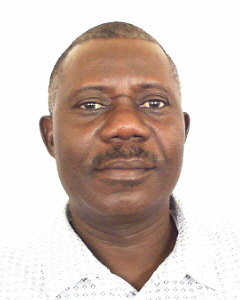Course Synopsis
This course introduces application of Quantum mechanics. It covers approximate solutions to quantum mechanical equations, introduces the perturbation methods and the rules governing electronic transitions. It also covers application of quantum mechanics to selected phenomena like atomic physics, molecular physics and solid state physics.
Course Synopsis
This course is a specialised, descriptive and exploratory course. It is designed to equip the students with the basic knowledge of semiconductors, their uses, the use of such systems in the preparation/fabrication of alloys and semiconductor materials/thin films of various forms. The course is expected to run parallel with workshop laboratory where the students will need to carry out systematic operations, fabrication and characterisation of p-n junction diodes of different forms. The course will also meet the need of students in materials science and engineering.
Course Synopsis
This course is an exploratory, first course in computer usage designed primarily for students in forestry and allied disciplines. However, it also meets the need of students in other fields, as a course that provides hands-on training in the use of computers for word processing, descriptive data analysis and preparation of slides for presentation. As a practical course, the focus is to impart useful skills on the students in order to enhance their computer literacy level and prepare them for other specialised applications to be encountered at higher levels. Topics to be covered include computer hardware components and their functions; operating systems with emphasis on Windows Operating System; file and disk management; Microsoft Office (Word, Excel and PowerPoint) and use of the Internet.
Course Synopsis
Nuclear structure, nuclear properties: nuclear size, nuclear masses; nuclear models, nuclear forces, the deuteron neutron-proton and proton-proton scattering at low energies. Nuclear models. Radio-active Decay; Alpha, beta, gamma decays. Nuclear reactions, reaction cross sections, compound nucleus formation and break up.
Course Synopsis
This course is a specialised, descriptive and exploratory course. It is designed to equip the students with the basic knowledge of vacuum systems/pumps and the use of such systems in the preparation/fabrication of alloys and semiconductor materials/thin films of various forms. The course is expected to run parallel with workshop laboratory where the students will need to carry out systematic operations and fabrication and characterisation of alloy/thin films in their different forms using vacuum systems. The course will also meet the need of students in materials science and engineering.
Course Synopsis
This course is designed for final year students in physics to expose them to the applications of physics in energy conversion technology. It discusses the basic physics requirement in the understanding of solar energy conversion and other sources of renewable energy. The applications of thermodynamic laws and efficiency of thermal engines are also discussed. Topics to be covered include Fossil fuels, Nuclear power, Renewable energy: solar energy, solar photovoltaic electricity, hydroelectric power, tidal power, Biomass and biofuels, Geothermal power.
Course Synopsis
This course introduces application of Quantum mechanics to selected phenomena in atomic and molecular physics. It covers the basis leading to the development and quantum mechanical equations for the interpretation of certain phenomena. It also covers spectroscopic experiments like x-ray scattering, Nuclear magnetic resonance (NMR) optical pumping and the Mossbauer efect.
Course Synopsis
The course is the second part of a comprehensive course in nuclear and particle physics meant to train students in nuclear and health physics. It covers topics in radiation sources – natural and artificial sources. Charged and uncharged particles and their nature, properties and mechanisms of interaction with matter and dealt with. Nuclear instrumentation and radiation detection techniques are described. Closely following these are the descriptions of different types of nuclear radiation detectors and their applications. Nuclear spectroscopy such as gamma and alpha particle spectroscopy and their application in the analysis of mixed radiation sources are also taken care of in the course. The course also has a section on neutron physics – production, detection, uses, properties and interaction with matter. Nuclear reactor physics and application is a part of the course. Students taking the course will be trained in the production of nuclear energy through fission and fusion. The last part of the course is devoted to elementary particles – conservation laws, partial classification, strong electromagnetic and weak interactions.

